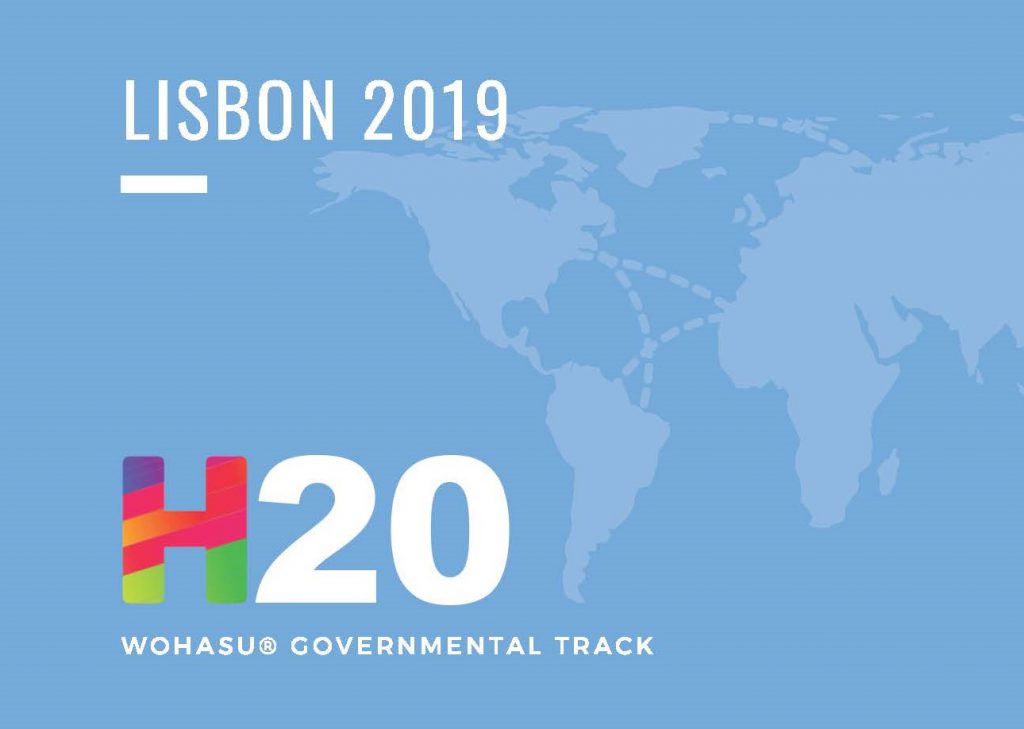Smart Prosperity, the Public Policy Breakthrough
Government sustainability and citizen wellbeing lessons were shared at the H-20 summit in Lisbon Portugal earlier this month. FreeBalance sponsored the summit, reflecting our government innovation mission. Much like the G20 focuses on growth economics, the H-20 examines wellbeing economics. We believe that reoriented economic objectives from growth to wellbeing simplifies policy design while improving government effectiveness.
This H-20 examined the impact of peace on citizen wellbeing. As emcee of the event, the big highlight for me were lessons learned from Laura Chinchilla, the former President of Costa Rica.
Our President and CEO, Manuel Pietra opened up the summit. He emphasized how happiness and positive peace should be integral to government policymaking.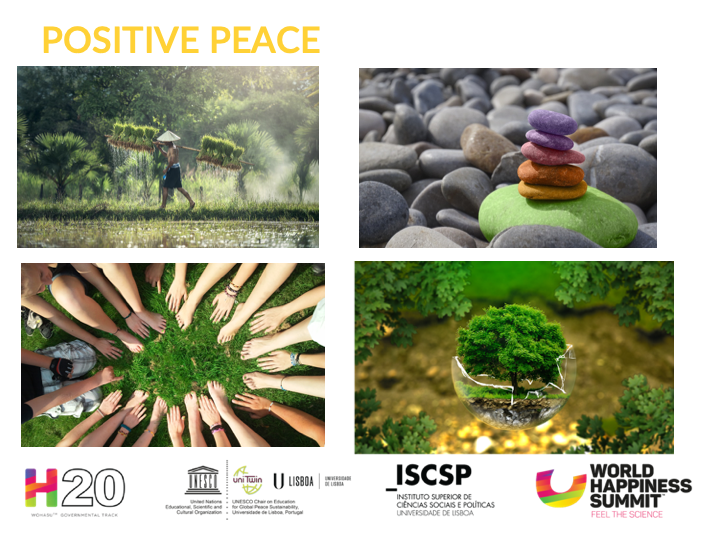
Wellbeing and Policy Lessons
Laura Chinchilla described how wellbeing with focus on environment, education and health improved government effectiveness in Costa Rica. She described the differences between positive peace and negative peace. Positive peace is when there is justice for all.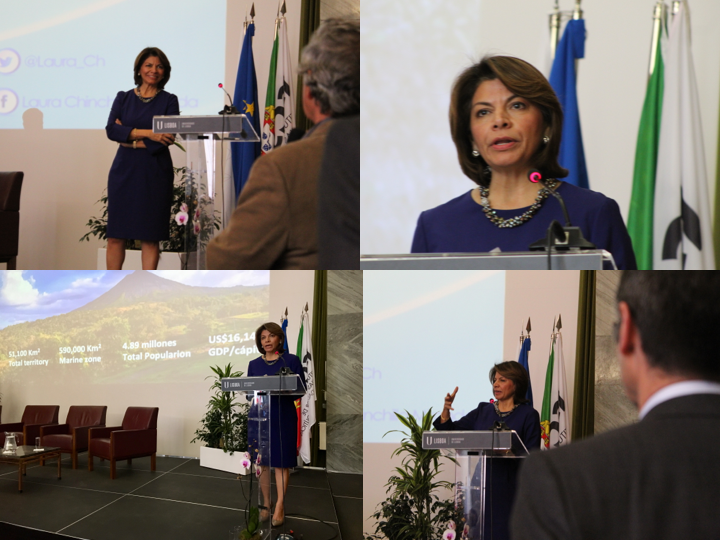
Laura Chinchilla
H-20 attendees were curious about the impact of eliminating Costa Rica army. Ms. Chinchilla described how military forces in Latin America have reduced national security. And, eliminating the military enables increasing social spending. Costa Rica has been rated one of the happiest countries in the world.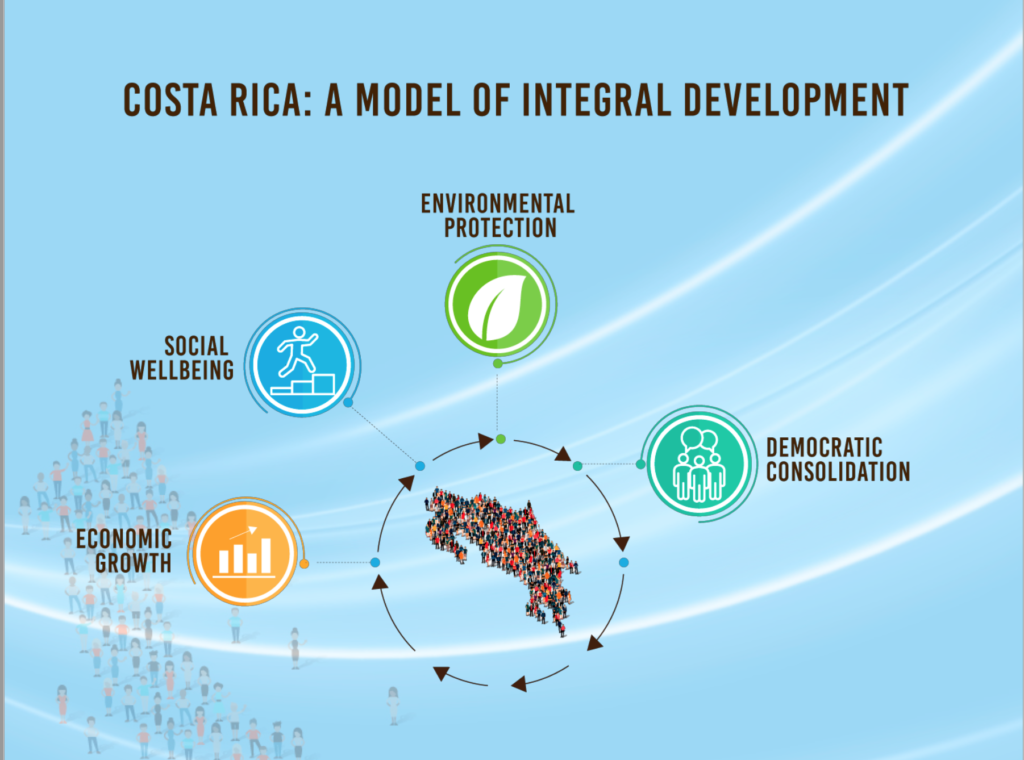
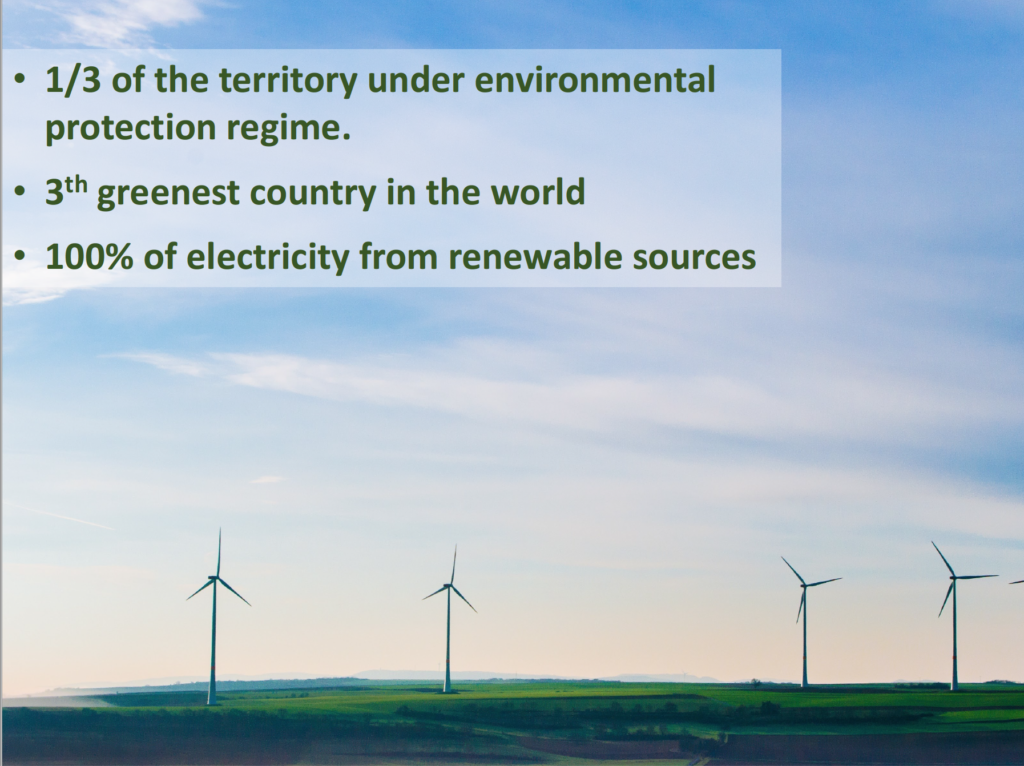
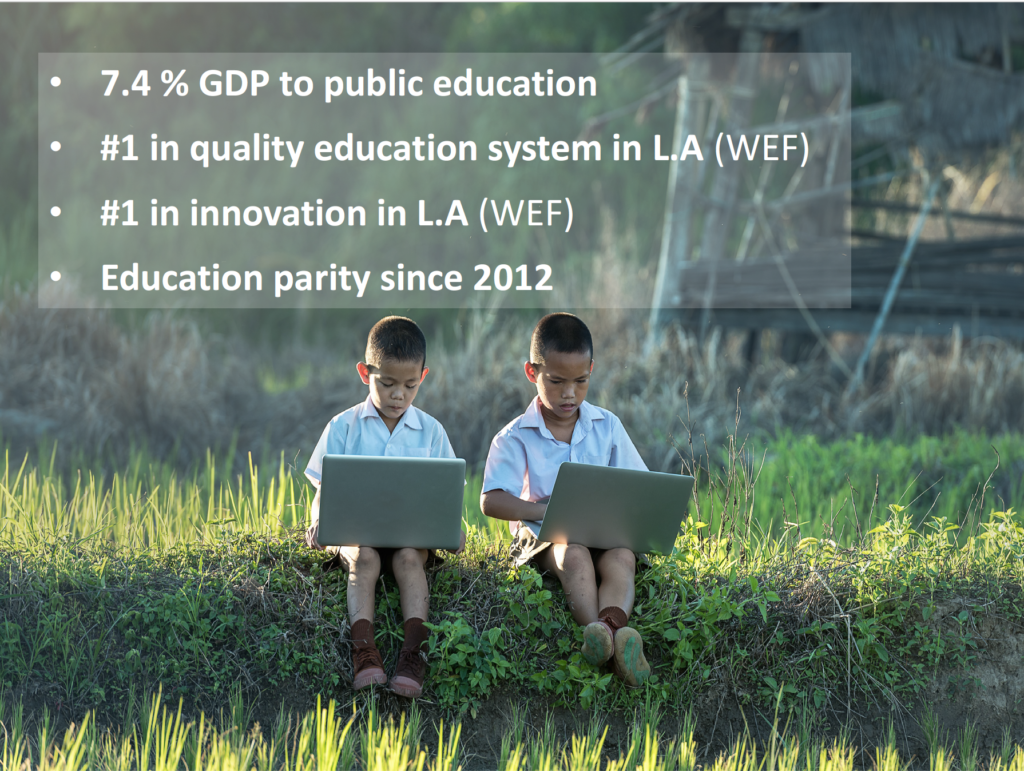
Silvia Manclossi, Head of the Quality of Life Team, Sustainability & Equities Division, Office for National Statistics of the UK Government described in detail how wellbeing can be effectively measured and used to improve the lives of individuals, and communities.
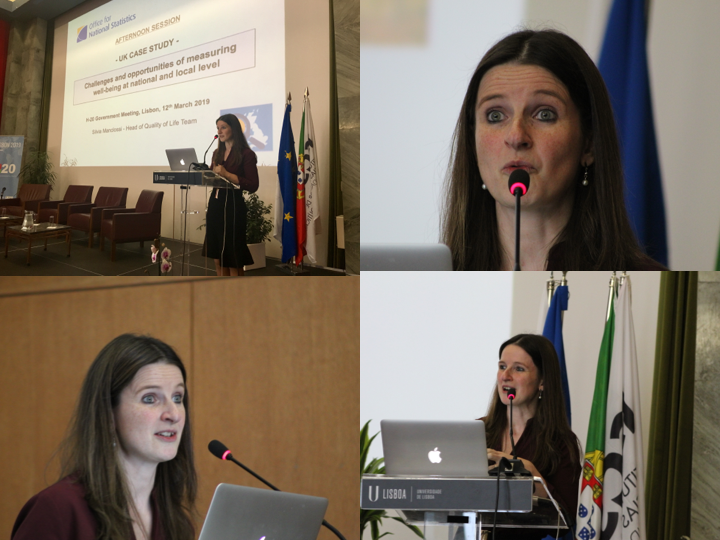
Silvia Manclossi
Ms. Manclossi demonstrated how wellbeing data can improve civil society interventions and government policies. Good wellbeing statistics can expose unrealized problems, particularly when the information is made accessible. Accessible and visualized information can foster individual and community change.
Alejandro Adler, Director, Well-being Science and Policy, UN Sustainable Development Solutions Network provided rich statistical information about why money can’t buy happiness. At least, not after countries achieve more than $15,000 GDP per capita.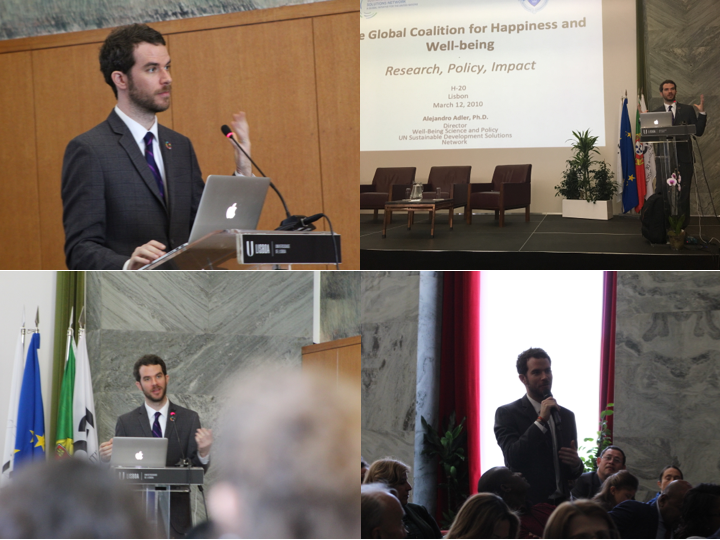
Alejandro Adler
Professor Adler demonstrated different ways to effectively measure citizen wellbeing and happiness. He described how policy directly influences wellbeing. Wellbeing exposes the depth of problems so that policy interventions can be more successful. Data needs to be statistically relevant and accessible to improve public policy.
More Public Policy Lessons
Pilar Saborio de Rocafort, former Ambassador of Costa Rico to Iceland, Ireland, the UK, and Permanent Representative to the UN described the impact of gender equality on country growth and wellbeing.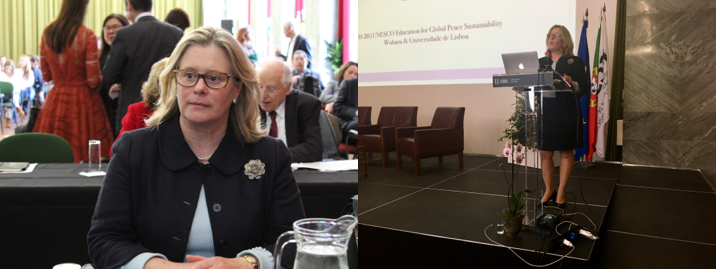
Pilar Saborio de Rocafort
Ms. de Rocafort discussed the political difficulties of achieving buy-in to gender equality. She emphasized that leadership from the top can move gender equality from pronouncements to action.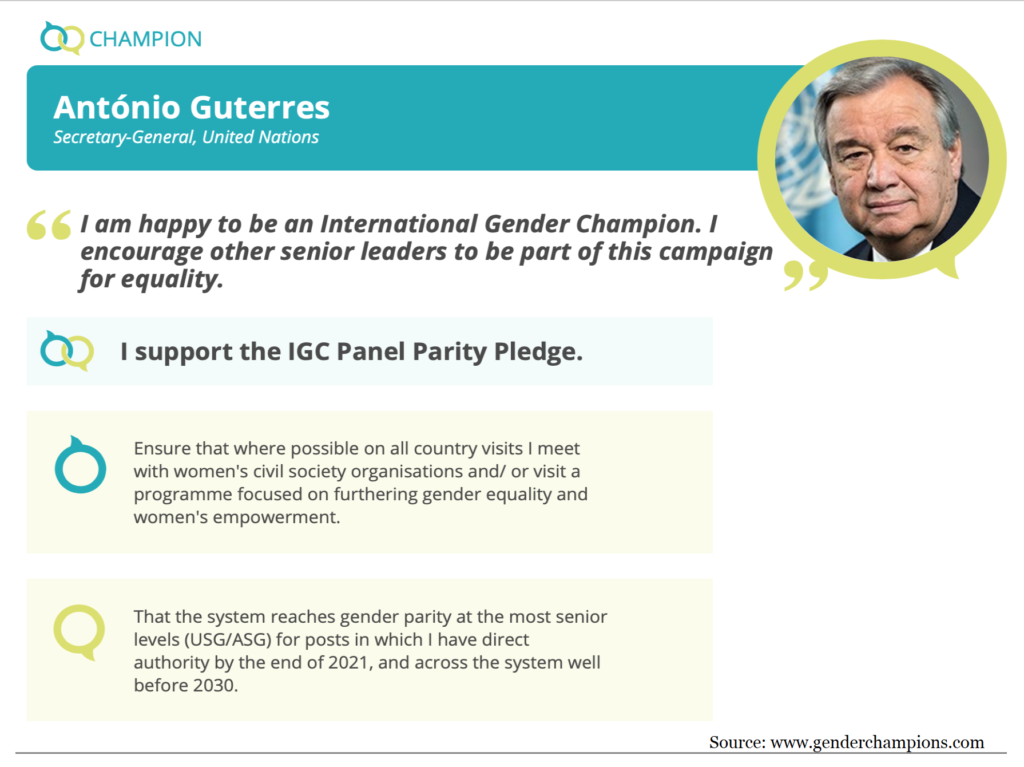
Charles Landry delved into the human future of cities given growing global urbanization. Landry stressed how human-centred cities improve improve innovation, wellbeing and sustainability. To improve citizen wellbeing, government organizations need to bring wellbeing into the public service, to develop the “creative bureaucracy”
Sandro Formica of the Florida International University shared case studies on how to make human values tangible to improve staff wellbeing and improve performance.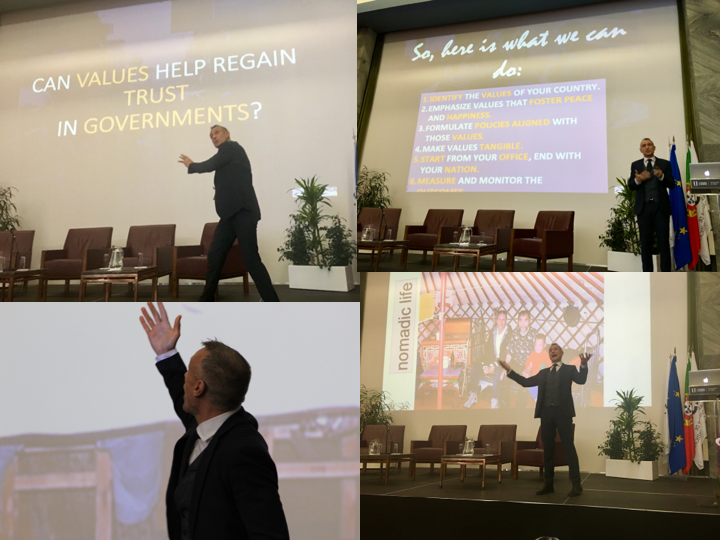
Sandro Formica
Event Impressions
The H-20 was packed this year filling the 160-seat venue at the University of Lisboa. Ambassadors and Counsel-Generals from numerous countries attended. We were fortunate that our Canadian Ambassador to Portugal, Lisa Rice Madan, attended the H-20.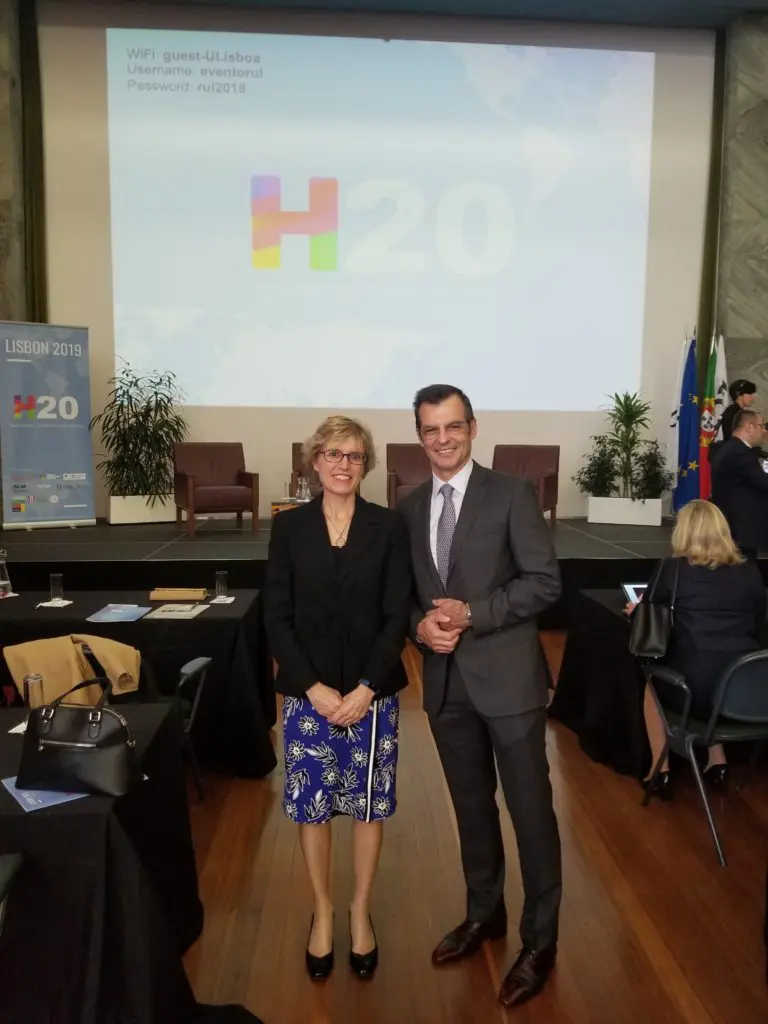
Lisa Rice Madan, Ambassador of Canada to Portugal with Manuel Pietra, FreeBalance President & CEO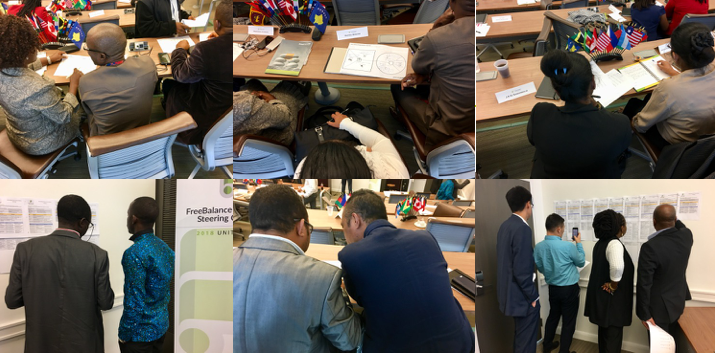
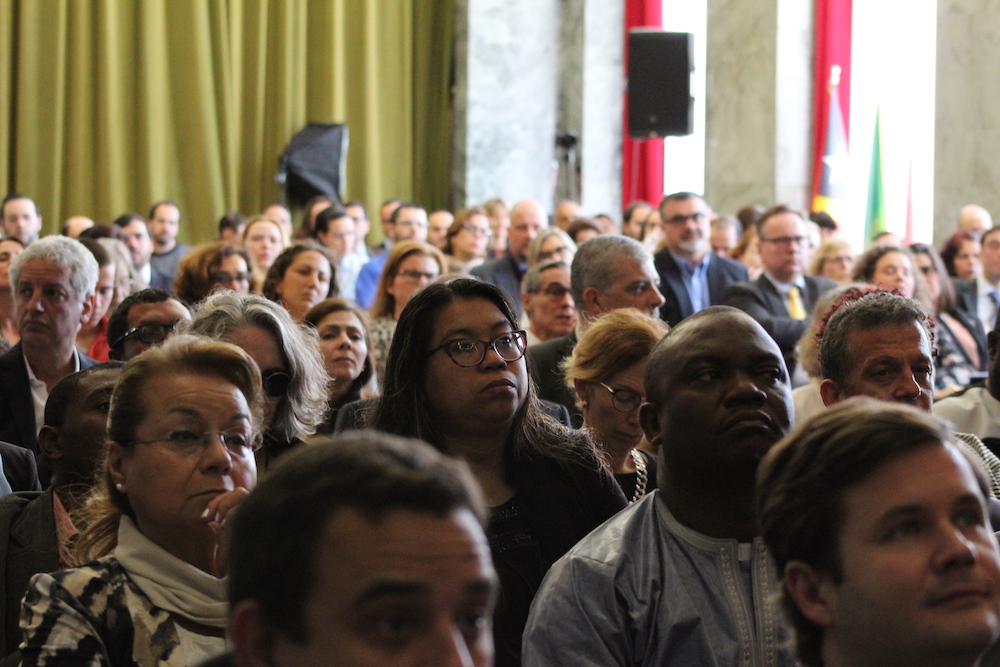
Standing room only at the H-20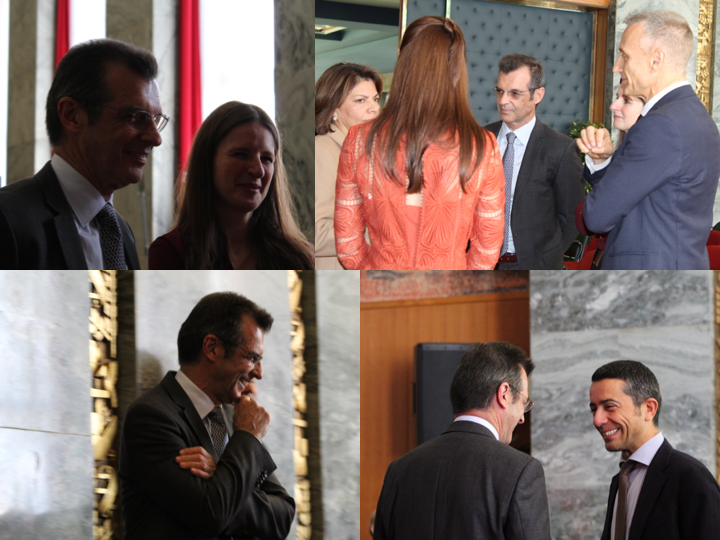
Behind the H-20 scenes with Manuel Pietra
Additional Policy Innovation Links
.@aadler12 dissertation: Teaching Well-Being increases Academic Performance: Evidence From #Bhutan, #Mexico, and #Peru https://t.co/xtiGZOKb7X #H20PeacefulProsperity
— FreeBalance (@freebalance) March 12, 2019
relevant paper by @aadler12 & @MartinEPSeligma Using Wellbeing for Public Policy: Theory, Measurement, and Recommendationshttps://t.co/nQrWkdGMXg #H20PeacefulProsperity
— FreeBalance (@freebalance) March 12, 2019
.@aadler12: #education of young people has biggest long-term impact for #wellbeing
— FreeBalance (@freebalance) March 12, 2019
#wellbeing science improves government #policy https://t.co/61sP2v3osB #H20PeacefulProsperity
— FreeBalance (@freebalance) March 12, 2019
public #policy lessons from previous @HappinessRpt https://t.co/MY9HqpOTqT #H20PeacefulProsperity
— FreeBalance (@freebalance) March 12, 2019
more insight from @aadler12 “La Experiencia de la Educación Positiva en el Mundo” https://t.co/IBK436Siyz #H20PeacefulProsperity
— FreeBalance (@freebalance) March 12, 2019
great Pilar Saborio video on small countries leading in action on #climatechangehttps://t.co/BE3KWTrUMx #H20PeacefulProsperityhttps://t.co/dxzrfxPGf7
— FreeBalance (@freebalance) March 12, 2019
